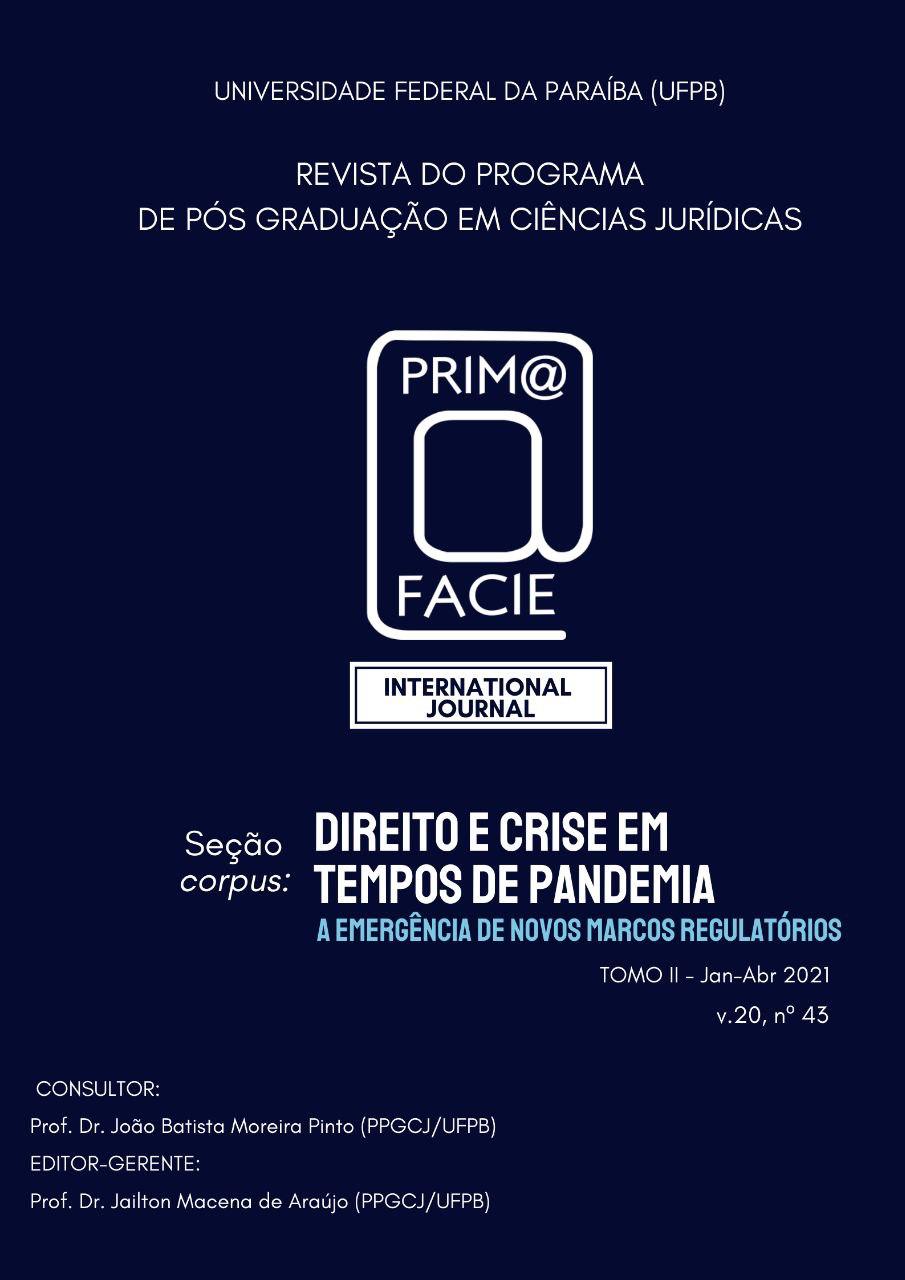Mechanisms To Combat Disinformation: An Analysis In The Light Of The Inter-American Commission On Human Rights
DOI:
https://doi.org/10.22478/ufpb.1678-2593.2021v20n43.54652Keywords:
fake news; freedom of expression; media literacy; awareness; fact checkingAbstract
Using qualitative research, the deductive approach method and bibliographic and documentary research techniques, the article aims to analyze the mechanisms to combat disinformation in the light of the recommendations of the Inter-American Commission on Human Rights and the tripartite test developed by the jurisprudence inter-American. It was concluded that false information is included in the scope of legal protection conferred to freedom of expression, since the requirement for veracity in information tends to degenerate into censorship of the right to freely express opinions, ideas and information; and the eventual criminalization of fake news, as well as the liability of providers, constitute extremely dangerous restrictions on freedom of expression and illegitimate, since they do not meet the basic requirements set by the tripartite test. Finally, it emerged that the recommendations made by the Inter-American Commission to national states are aimed at promoting positive measures such as media literacy, raising public awareness and encouraging fact-checking platforms, as they represent promising alternatives in combating disinformation while not imposing restrictions or suppressions on freedom of expression.
Downloads
Downloads
Published
How to Cite
Issue
Section
License
Copyright (c) 2021 A Prim@ Facie detém direitos exclusivos de publicação e distribuição sob concessão absolutamente franca da parte do autor, ou autores.

This work is licensed under a Creative Commons Attribution-NonCommercial-NoDerivatives 4.0 International License.
Os autores estão cientes de que transferem seus direitos de publicação e distribuição à revista Prima Facie. Os autores autorizam o uso do trabalho para fins não-comerciais, incluindo direito de enviar o trabalho em bases de dados de Acesso Livre. As provas finais poderão não ser enviadas aos autores antes da publicação, seguindo a revista seu padrão técnico explicitado nas suas normas e nos formatos praticados em acordo com a CAPES e com padrões de excelência adotados. As opiniões emitidas pelos autores são de sua exclusiva responsabilidade não sendo a revista solidária da livre opinião exposta por eles.

